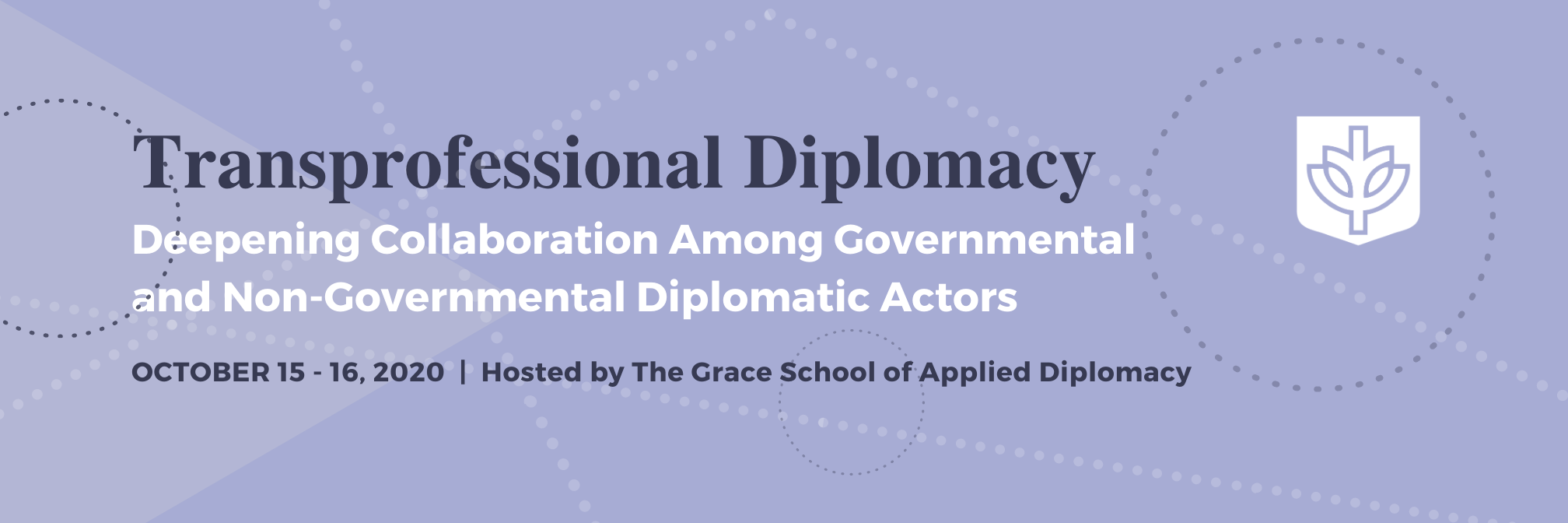
Overview of Conference
In their collaborative volume
Transprofessional Diplomacy (Brill, 2017), Costas M. Constantinou, Noé Cornago and Fiona McConnell crafted a term to describe the reality of how diplomacy is currently practiced. For while nation-state diplomatic representatives continue the vital work of practicing diplomacy as it has been traditionally understood, diplomatic actors today also include businesspeople, scientists, artists, educators, religious leaders, social workers, community organizers and activists, among others. As we confront multiple transnational challenges, including the global ecological crisis, the rise of nationalism, racial and economic inequality, the fear of religious and ethnic difference and the manner in which all these phenomena have been amplified by the COVID-19 pandemic - the need for a deeper level of collaboration among all practitioners of diplomacy has never been greater. This conference explores the work and the strategies being proposed and employed by practitioners and scholars of diplomacy across multiple vocations and contexts to promote such cooperation.
In his book
Diplomatic Theory of International Relations (Cambridge University Press, 2009), Paul Sharp wrote, "We should expect private enterprises, civil society organizations and possibly individual people to engage in more and more diplomacy as they become more influential in international relations. We should want them all to be good at it." The mission of the Grace School is to train future practitioners of diplomacy across all vocations - from those pursuing careers in the foreign service to those who want to build bridges in their own neighborhoods as community organizers and activists. The goal of the Grace School is to create cohorts of students with a wide range of vocational trajectories who engage the study and practice of diplomacy together, and in so doing establish networks that they will take with them as they pursue their respective careers upon graduation. It is this goal that informs the theme of our conference.
Panel One: The Promise of Transprofessional Diplomacy and its relevance for understanding diplomacy's current role in the world and its future potential
In their collaborative volume
Transprofessional Diplomacy, Costas M Constantinou, Noé Cornago and Fiona McConnell crafted a term to describe the reality of how diplomacy is currently practiced. In this roundtable discussion, Constantinou, Cornago and McConnell explore the central question of the conference: “What do you believe is most needed to promote a deeper level of cooperation among governmental and non-governmental actors to find the most effective responses to the challenges we face in the 21st century?”
Panel One Panelists and Biographies:
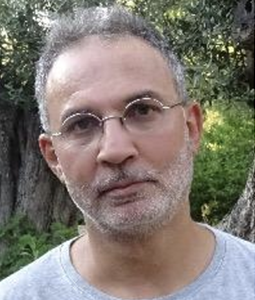
Costas M. Constantinou is Professor of International Relations at the University of Cyprus, with interests in diplomacy, conflict, international political theory, and legal and regulatory aspects of international relations. He completed his Ph.D. with a scholarship to the University of Lancaster, taught at the Universities of Hull, Keele and Lancaster, and as a Visiting Professor at Taras Shevchenko University in Kiev and the Middle East Technical University in Ankara. In addition to Cyprus, he has conducted field research in India, Nepal, Lebanon, Israel, Turkey and Kenya. His research has received international awards and distinctions, as well as external funding, including from the EU 7th Framework Program, funding from the European Economic Area and the Leverhulme Trust. He has been an external evaluator at Universities in Europe, America, Africa and Australia. He is a member of the editorial boards of international scientific journals, including Diplomatica, International Political Sociology, and Politics, Religion and Ideology. Constantinou is the co-author of Transprofessional Diplomacy. His other publications include the books States of Political Discourse and On the Way to Diplomacy.
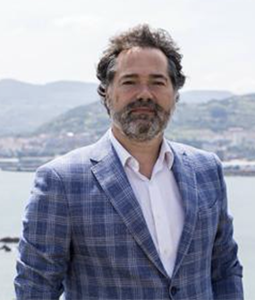
Noé Cornago is an Associate Professor of International Relations at the University of the Basque Country in Bilbao (Spain), where he was the Director of Graduate Programme in International Studies (2012-2018). He is the former Scientific Director of the Oñati International Institute for the Sociology of Law (2018-2020). Cornago’s research interests are focused on the contemporary transformations of diplomacy, global regulation, critical sociology of knowledge, post-development, and aesthetics and politics. He is the author of Plural Diplomacies: Normative Predicaments and Functional Imperatives (Leiden, Brill, 2013), and Transprofessional Diplomacy (Leiden, Brill, 2016) co-authored with Costas M. Constantinou and Fiona MacConnell. He has held diverse visiting positions at Ohio State University and University of Idaho in United States, Université Laval in Quebec, Canada and Sciences Po Bordeaux in France. He was Senior Visiting Fellow at St. Antony's College, University of Oxford (2011-2012), and Invited Professor at Sciences Po Paris (Spring 2017). He is also a member of the editorial/advisory boards of The Hague Journal of Diplomacy and Diplomatica: A Journal of Diplomacy and Society. He has promoted a number of decentralized partnerships with various UN institutions and collaborated with the Congress of Local and Regional Authorities of the Council of Europe.
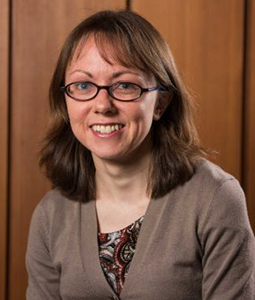
Fiona McConnell is Associate Professor in Human Geography and Tutorial Fellow at St Catherine's College, Oxford University. She joined the School of Geography and the Environment in December 2013. Prior to this she was a lecturer in human geography at Newcastle University and has also held a Junior Research fellowship at Trinity College, Cambridge (2011-2013) and an ESRC postdoctoral fellowship at Newcastle University (2010-2011). Fiona has a BA in Geography from the University of Cambridge (Fitzwilliam College) and PhD from Queen Mary, University of London. As a political geographer Fiona's research aims to develop new areas of thinking regarding governance beyond the state, how political legitimacy is articulated by marginalized communities, and changing practices of diplomacy and mediation. Fiona was awarded a Philip Leverhulme Prize for Geography in 2019, the Stanley D. Brunn Young Scholar Award by the Political Geography Specialty Group of the AAG in 2013 and held a British Academy Mid-Career Fellowship in 2017. She was an Associate Editor at Political Geography 2016-19, and serves on the editorial boards of Geopolitics, The Geographical Journal and Environment and Planning C: Politics and Space. Fiona also sits on the Board of Directors of the Tibet Justice Center.
Panel Two: Religion, Diplomacy and the Work of Building Interconvictional Bridges across Boundaries of Difference
Each one of our speakers for this roundtable are noted leaders in the work of interfaith bridge building in Europe, and between the three of them head four NGOs on the continent devoted to the work of building interconvictional solidarity across boundaries of religious, racial and ethnic difference. "Interconvictional" is a term which is inclusive of both practitioners of a religious tradition and those who are agnostic or atheist, and its proponents view all groups as having equally valuable convictions and making equally valuable contributions to civil society. The organizations each of our speakers head are central players in the practice of network diplomacy among young people in Europe - and it should therefore come as no surprise that each are involved in the work of one another's NGOs.
Panel Two Panelists and Biographies:
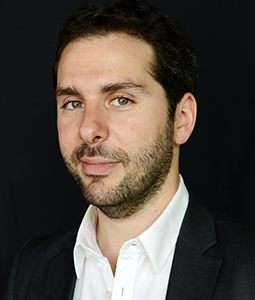
Rafael Tyszblat is a founding leader of Connecting Actions and the European Institute for Dialogue, two NGOs focused on providing platforms for interfaith and interconvictional organizations to create networks across Europe. An expert in conflict resolution, mediation, intercultural and interconvictional dialogue, Rafael has trained thousands of youth and adults in effective communication skills through his work with the non-profit New York-based organization Soliya.
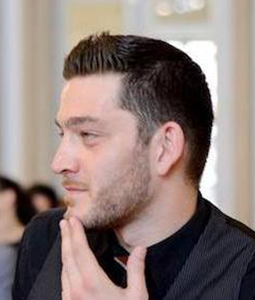
Ilja Sichrovsky is the founder and General Secretary of the Muslim Jewish Conference, a Vienna-based grassroots dialogue and leadership organization focusing on building sustainable networks between Muslim and Jewish leaders. Founded in 2010, the MJC has hosted events which have gathered more than 1500 leaders engaged in coalition building from over 65 countries across Europe, the Middle East, Central and South Asia, North and South America, and North and Sub-Saharan Africa.
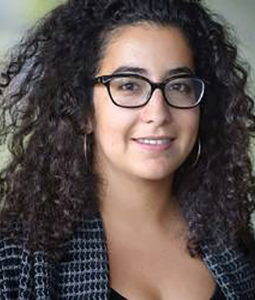
Radia Bakkouch is President of the Paris-based NGO Coexister, which since its founding in 2009 has facilitated the meeting of over 120,000 students across the European continent in its efforts to promote solidarity and action across boundaries of religion, race and ethnicity. A specialist in peacebuilding, youth empowerment and conflict transformation, Radia Bakkouch’s efforts serve to build community not only among students but also a growing Coexister alumni network.
Panel Three: Urban Diplomacy and its Role in Promoting Cooperation across Boundaries of Economic, Racial and Ethnic Difference
The term
Urban Diplomacy was coined at the Grace School to describe diplomatic acts which take place within the boundaries of a single city, which may or may not have international ramifications. Our three panelists for this round table include both scholars of diplomacy and practitioners, and together they examine the role of Urban Diplomacy in the context of three different geographic locations: Nairobi, Chicago and Mexico City.
Panel Three Panelists and Biographies:
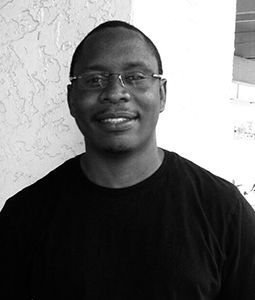
Sam Okoth Opondo is Associate Professor in Political Science and Africana Studies at Vassar College N.Y. His work examines the ‘mediation of estrangement,’ biopolitics, and the ethics and aesthetics of co-habitation in colonial and postcolonial societies. His work also engages, the problematics of humanitarian government, the politics of redemption, amateur diplomacies of everyday life, and popular culture in urban Africa. He is the author of the forthcoming Diplomatic Para-citations: Genre, Foreign Bodies, and the Ethics of Co-habitation (Rowman & Littlefield, 2021) and co-edited (with Michael J. Shapiro) The New Violent Cartography: Geo-Analysis After the Aesthetic Turn (Routledge, 2012).
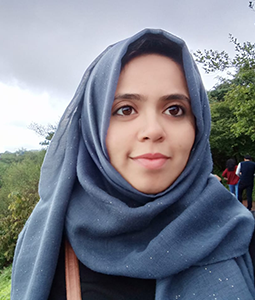
Sana Syed is the Director of Development and Strategy of the Inner-City Muslim Action Network, a community organization that fosters health, wellness, and healing on Chicago's Southside. She leads IMAN’s strategic development initiatives and partnerships. Born and raised in Mumbai, Sana has engaged across divides and worked with communities and non-profits in Sweden, Egypt, Yemen, Spain, Somaliland, India, Switzerland, and the United States.
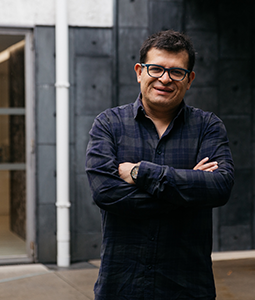
Antonio Alejo is a collaborator of the Research Group on Societies on Move at University of A Coruña and is a Research Associate in the Instituto Galego de Análise e Documentación Internacional (Spain). He currently researches on Urban Diplomacy, cities and human mobility in Galicia. Antonio holds a PhD (2011) in Contemporary Political Processes from the University of Santiago de Compostela, and has held postdoctoral fellowships at the Erasmus University of Rotterdam (ISS-The Hague) and the National Autonomous University of Mexico (UNAM). His research focuses on global sociology, diplomatic transformations and human mobility from beyond state-centric, and post-national perspectives. Dr. Alejo has written for Spanish and English journals as well as single-authored books in Spanish. He has published in journals as Migration Letters, Migraciones, Colombia Internacional, Latin America Polícy, Politics and Policy Education, Citizenship and Social Justice, CIDOB d`Afers Internacionals, and Third World Quarterly.
Panel Four: Diplomacy, Social Justice and their Role in Promoting Cooperation Across Boundaries of Economic, Racial and Ethnic Difference
Depending upon who is practicing it, diplomacy may or may not be used with the goal of promoting social justice. In the case of our three panelists - a scholar of religion, a foreign service officer and a human rights activist and NGO leader - the goal of social justice is central to their work and practice. In this roundtable, our three panelists discuss the work of building networks among millennial leaders in the MEA region, the need for diversity among foreign service officers and pedagogical approaches to integrating the work of social justice into a diplomatic studies program.
Panel Four Panelists and Biographies:
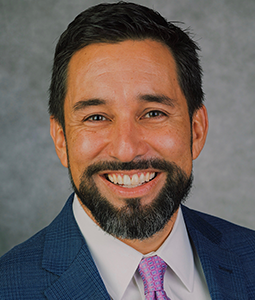
Christopher Tirres is the Inaugural Endowed Professor of Diplomacy and Interreligious Engagement in the Grace School of Applied Diplomacy and the director of DePaul's Center for Religion, Culture and Community (CRCC). He is the author of The Aesthetics and Ethics of Faith: A Dialogue Between Liberationist and Pragmatic Thought (Oxford, 2014) as well as two forthcoming volumes: a monograph entitled Liberating Spiritualities in the Americas (Fordham) and a co-edited volume entitled Religion in the Americas: Transcultural and Trans-hemispheric Approaches. He has published and presented widely in the areas of religious studies, philosophy, theology, feminism and education. Dr. Tirres is the recipient of numerous grants and fellowships, including major awards from the Ford Foundation, the Louisville Institute, the Hispanic Theological Initiative and the Wabash Center for Teaching and Learning. Dr. Tirres in an award-winning teacher, and he is involved in a number of community-engaged initiatives both at DePaul and beyond. Most recently, he has collaborated with the Chicago-based Interfaith Community for Detained Immigrants (ICDI); the Mariposa Foundation, a program based in the Dominican Republic that seeks to end generational poverty by educating and empowering girls; and Solidarity Bridge, an organization that partners with communities in Bolivia and Paraguay to increase access to safe, affordable surgery and other essential health care. He was born and raised in El Paso, Texas and is a graduate of Princeton University (A.B.), Harvard Divinity School (M.T.S) and Harvard University (Ph.D.).
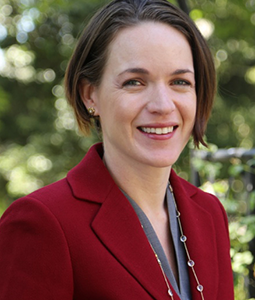
Caroline Savage is a career Foreign Service Officer who served most recently as Director of the U.S. Department of State’s Foreign Press Center. She is currently in training for her next position as Consul General in Almaty, Kazakhstan. As a non-resident fellow at Georgetown’s Institute for the Study of Diplomacy, her focus is diverse diplomacy leadership in foreign affairs, a project she began during her tenure as Virginia and Dean Rusk Fellow at ISD from 2018-2019. Prior to Georgetown, she served as Public Affairs Officer at U.S. Embassies Azerbaijan and Mozambique. In Washington assignments, she was Director for Russia and Central Asia on the National Security Council and Political-Military Officer in the U.S. Department of State’s Office of Russian Affairs. She also served previously in Belarus and Luxembourg. A native of Wauwatosa, Wisconsin, she graduated from Georgetown University’s Edmund A. Walsh School of Foreign Service, then received master’s degrees in Russian, East European and Central Asian Studies and Political Science from the University of Wisconsin-Madison. Her languages are French, Russian, Portuguese and Azerbaijani.
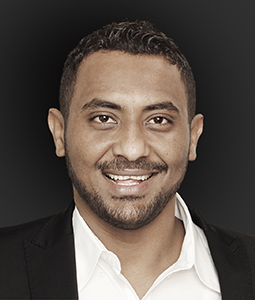
Mohamed Abubakr is the President of the African Middle Eastern Leadership Project. He is a Sudanese human rights activist and peacemaker with a decade and a half of civil society experience. Since high school, Mohamed has founded and led organizations and initiatives focused on humanitarian, human rights, youth empowerment and peace programs across the Middle East and Africa (MEA) including in South Sudan, Sudan, Egypt, Israel, the Palestinian Territories and beyond. Mohamed has also documented, reported and mobilized against human rights abuses across MEA, and since arriving in the United States has become a sought after voice concerning policy and human rights issues in the region.
Panel Five: Diplomacy, the COVID-19 Pandemic and the New Emerging Diplomatic Landscape
For our final session, we turn to an intentionally global perspective and consider the present and future of diplomacy in light of the COVID-19 pandemic. Our panelists include four individuals who have all distinguished themselves as both scholars and practitioners of diplomacy in high stakes contexts which have impacted broad cross sections of our global population.
Panel Five Panelists and Biographies:
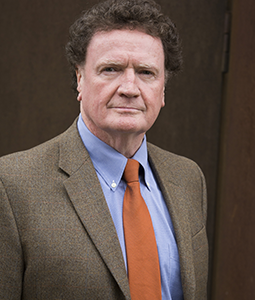
Geoffrey Wiseman holds the Endowed Chair in Applied Diplomacy at DePaul's Grace School of Applied Diplomacy. He is a former diplomat and foundation program officer who served in the Australian foreign service with postings in Stockholm, Hanoi, and Brussels and as advisor to the Australian Foreign Minister, Gareth Evans. He has also worked in the Strategic Planning Unit of the Executive Office of the United Nations Secretary-General and as peace and security program officer at the Ford Foundation. Geoffrey’s key journal articles cover a range of topics relevant to this conference, notably ‘polylateralism’; diplomatic culture; American diplomacy; diplomatic practices at the United Nations; public diplomacy and hostile nations; and contemporary challenges for foreign ministries. He is the author of Concepts of Non-Provocative Defense: Ideas and Practices in International Security and co-editor of Diplomacy in a Globalizing World: Theories and Practices and The Diplomatic Corps as an Institution of International Society. Geoffrey has held academic appointments at the Australian National University and the University of Southern California.
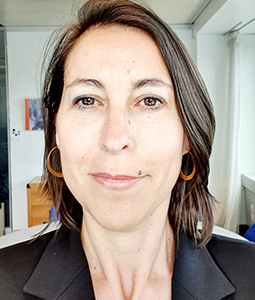
Meritxell Relaño Arana is the Deputy Director of Emergency Operations for UNICEF in Geneva. Her current responsibilities include acting as UNICEF’s liaison with the IASC Interagency Standing Committee, hosting UNICEF’s Global Education, WASH, Nutrition Clusters and the Child Protection Area of Responsibility, and guiding UNICEF’s strategy on Accountability to Affected Populations, while managing her organization’s relationship with NGOs and private sector actors to support humanitarian operations. She is the former UNICEF Representative to Yemen, where she managed one of the most complex humanitarian operations in the world. Her career has included working in the Basque Consortium of NGOs, and in Gernika Gogoratuz, a Peace Research Center. Her United Nations work began in 1999 at UNICEF, Latin America and the Caribbean Regional Office, in Bogota, Colombia in the field of Education. Later she joined the UN Transitional Administration in East Timor, under the Department of Peace Keeping Operations working in the area of early childhood development. From East Timor she moved back to UNICEF Regional Office in Latina America and Caribbean, in Panama, and later to UNICEF Mozambique where she expanded her focus to areas such as HIV/AIDS prevention, life skills education and managed an integrated programme “Access to Quality Basic Education” in 7 provinces of Mozambique. Her work has also included holding the position of the UNICEF Representative in Djibouti and its Deputy Representative in Gambia. Meritxell holds a PhD in Political Sciences and Sociology under "Cooperation and Conflict in the Contemporary International Society" programme, from the Department of International Public Law, International Relations and History of Law, Basque Country University (UPV-EHU), Leioa, Spain. She has a Master in Business Administration & Management, ESEUNE Escuela Europea de Estudios Universitarios y de Negocios, Bilbao, Spain, a Specialist Diploma in Basque Culture, and a degree (Licenciatura) in Political Sciences and Sociology, with specialization in Political Sociology from the University of Deusto, Bilbao, Spain.
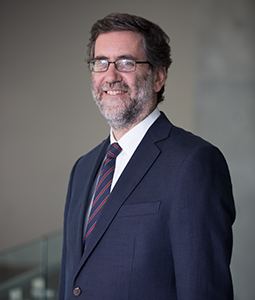
Dr. Andrea Bartoli is the President of the Sant’Egidio Foundation for Peace and Dialogue. He works primarily on peacemaking and genocide prevention. He is a member of the Steering Group of the Global Action Against Mass Atrocity Crimes (GAAMAC) and of the Global Steering Committee chaired by the United Nations Special Adviser on the Prevention of Genocide. Dr. Bartoli has been a member of the Community of Sant’Egidio since 1970. He was its Representative to the UN and the USG (1992-2018). He was the Convener of the Genocide Prevention Advisory Network (GPANet); the Dean of the School of Conflict Analysis and Resolution at George Mason University and of the School of Diplomacy at Seton Hall University. He was also the Founding Director of the Center for International Conflict Resolution at Columbia University. He is a Visiting Fellow at the Advanced Consortium on Cooperation, Conflict and Complexity – AC4.